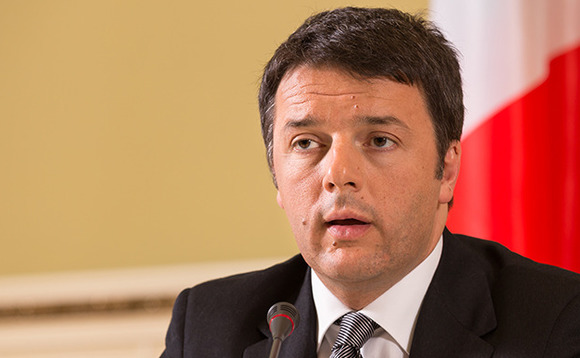
Renzi’s reforms fuel Italy’s private equity renaissance

The reform-focused policies led by Italian prime minister Matteo Renzi are proving lucrative for the country’s private equity industry. Kenny Wastell reports
In September, Italian regional pension fund Solidarietà Veneto-Fondo Pensione made its second foray into private equity, committing €7m to Assietta Private Equity III, according to Italian publication Milano Finanza. The LP had previously committed the same amount to Friulia Veneto Sviluppo's maiden vehicle in February 2015, signalling the arrival of Italian pension funds onto the private equity landscape.
The development follows a law passed by the Italian government towards the end of 2014 paving the way for such investors to back alternative investment funds. Previously, investing in private equity was prohibitively challenging due to legislation, such as the requirement for pension funds to justify the value of investments on a continuous and short-term basis. Since the new legislation was passed, the country has gone further still, passing another law introducing tax credits for pension funds investing directly into private equity and venture capital.
"All the legal constraints have been removed," says Nino Tronchetti Provera, founder and managing partner at Ambienta. "Now it is just a case of pension funds organising themselves, which is apparently starting to happen. It is not going to change over the course of a week – you are not going to see trillions flowing into private equity overnight – but it is happening."
Growing fortunes
The pension fund reform is just one of many introduced by the Italian government since prime minister Matteo Renzi came to power in 2014. The Italian economy has responded strongly, with the country just recently upgrading its growth forecast for 2015 and 2016 to 0.9% and 1.6% respectively.
The healthy economic signals, from what is one of Europe's traditional powerhouses, are catching the eye of international LPs. Italian fund managers followed a barren 2013 with a more fruitful 2014; Ambienta and Xenon Private Equity each closed their latest funds above target, while Aksia Group and Consilium held first closes during the year. This year, Assietta has closed its aforementioned third fund on €48m, while 21 Investimenti and Montezemolo & Partners have each held first closes for new vehicles on €220m and €400m respectively.
"The period between 2012 and 2014 was the point of change from a very unattractive market to a much more attractive market," says Tronchetti Provera. "Today it is much easier to sell Italy, for a series of reasons, including Renzi. A lot of reforms have been approved, including lower taxation on real estate, companies and other areas."
Normal service
Yet, as Tronchetti Provera also points out, Italy's position as one of Europe's industrial leaders is not a new phenomenon. According to statistics by the European Commission, Italy consistently ranked among the top three industrial producers in the European Union between 2007 and 2013. Furthermore, small and medium enterprises account for 99.9% of businesses and around 80% of the workforce, according to 2012 data from the OECD, making Italy ideal for growth capital investments.
"If you look elsewhere today and ask yourself what other country is stronger than Italy, there are not many," says Tronchetti Provera. "It is partly because we, too, now have a more normal political situation and therefore people are paying more attention to the hard facts. People now realise we have the largest number of small and medium industrial companies. People realise we are the second biggest manufacturer in Europe. These have both been the case for ages."
Private equity levels in Italy remain relatively low, with the UK, France, Germany, Norway and even Spain surpassing it in 2014 in terms of aggregate deal value, according to unquote" data. This is despite the fact International Monetary Fund statistics place Italy as having comfortably the fourth largest GDP in the European Union.
With new financial and employment regulations taking root, the country is well placed to capitalise on its recent upturn in fortunes. As Tronchetti Provera puts it: "Given our industrial and economic position, hopefully Italy cannot be one of the smallest private equity markets forever. The country is moving forward, but Rome was not built in a day."
Latest News
Stonehage Fleming raises USD 130m for largest fund to date, eyes 2024 programme
Multi-family office has seen strong appetite, with investor base growing since 2016 to more than 90 family offices, Meiping Yap told Unquote
Permira to take Ergomed private for GBP 703m
Sponsor deploys Permira VIII to ride new wave of take-privates; Blackstone commits GBP 200m in financing for UK-based CRO
Partners Group to release IMs for Civica sale in mid-September
Sponsor acquired the public software group in July 2017 via the same-year vintage Partners Group Global Value 2017
Change of mind: Sponsors take to de-listing their own assets
EQT and Cinven seen as bellweather for funds to reassess options for listed assets trading underwater








